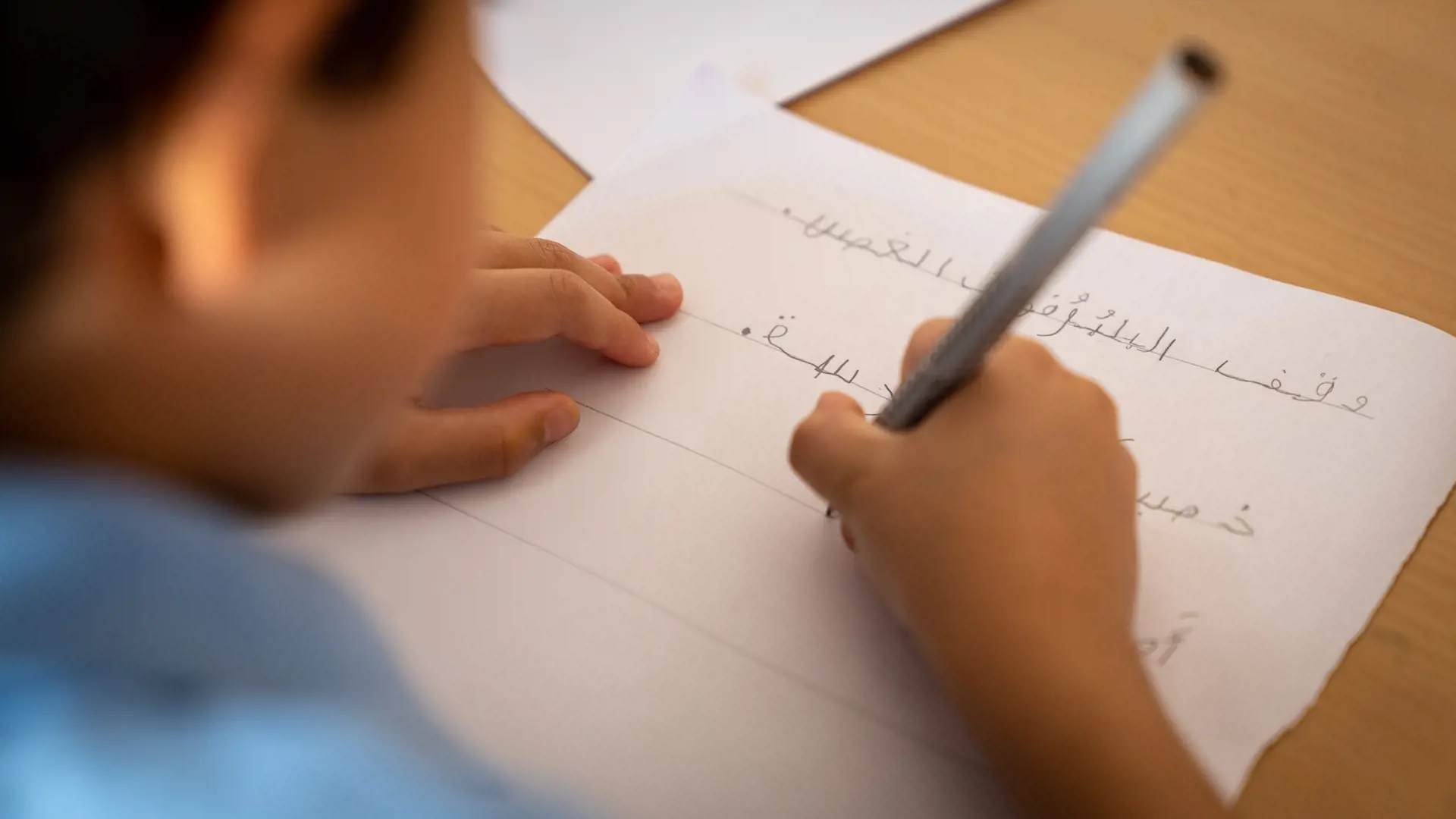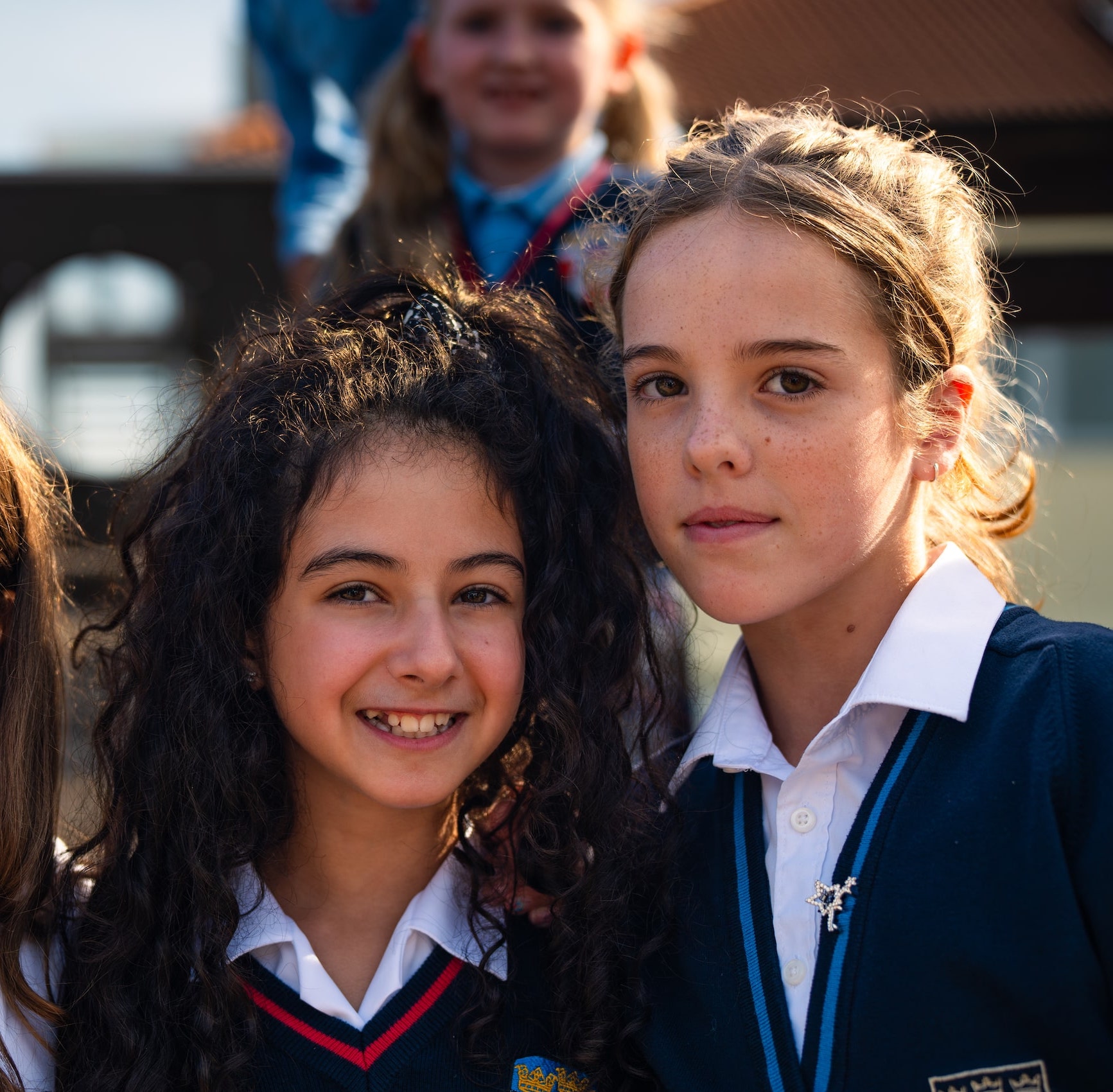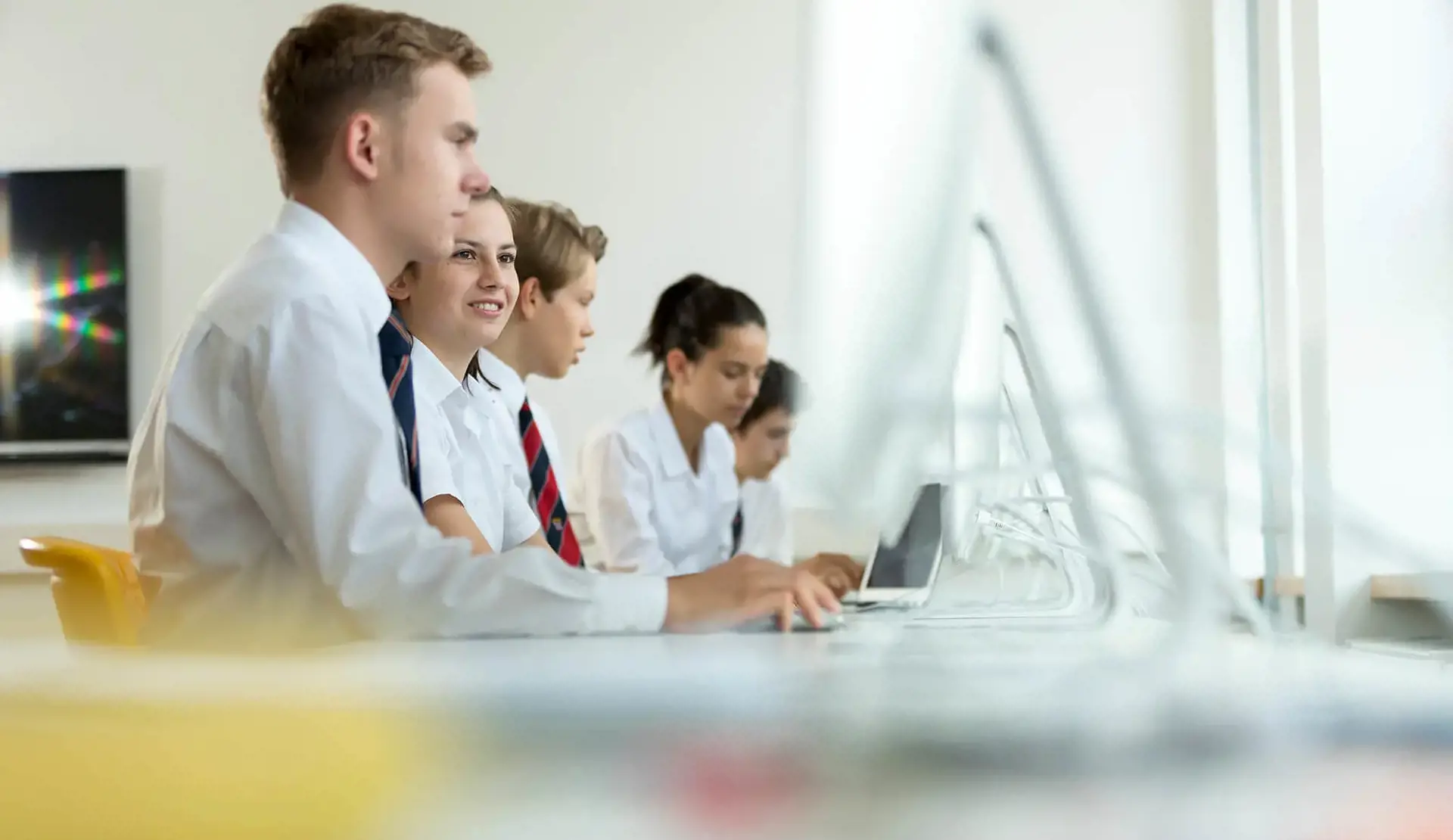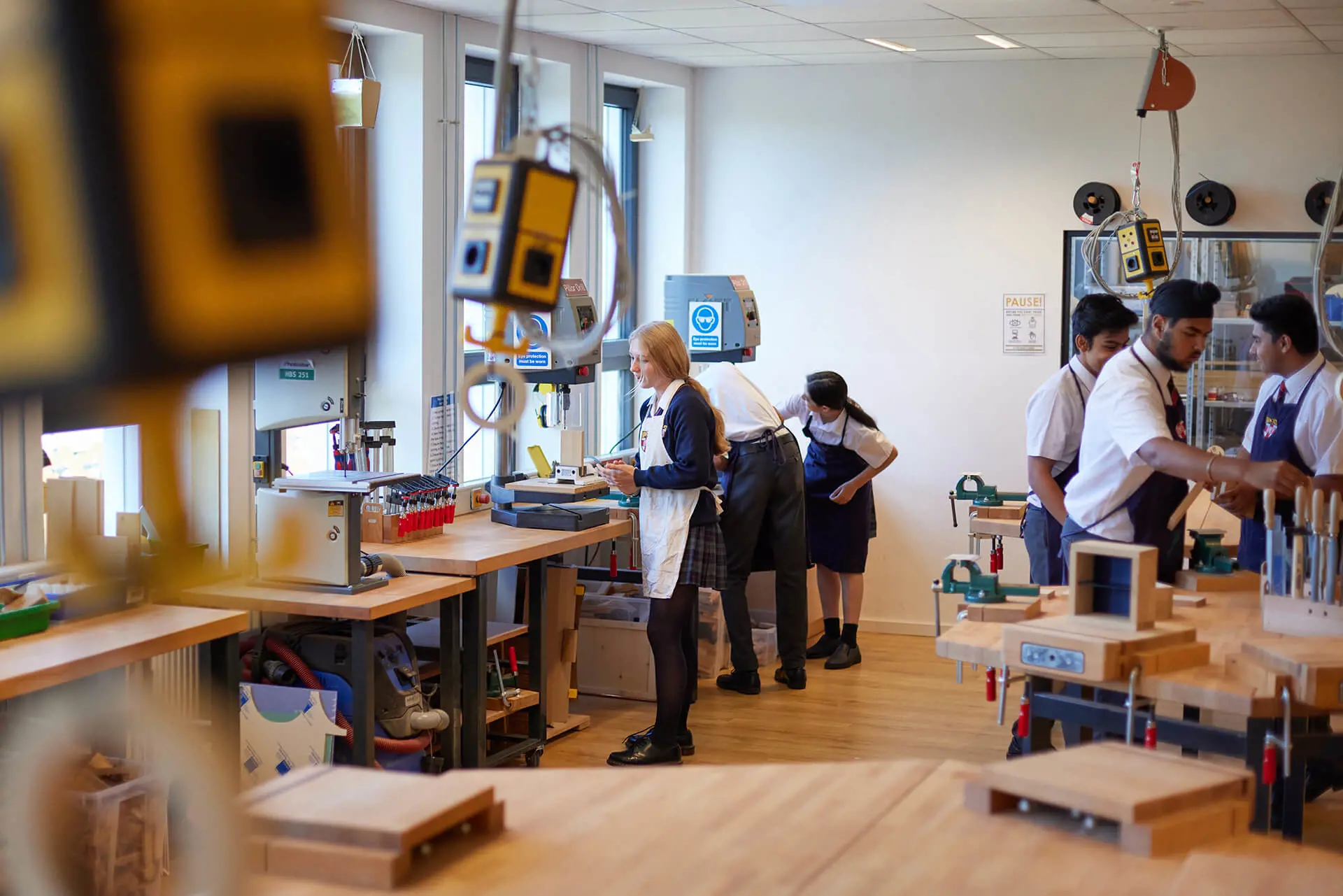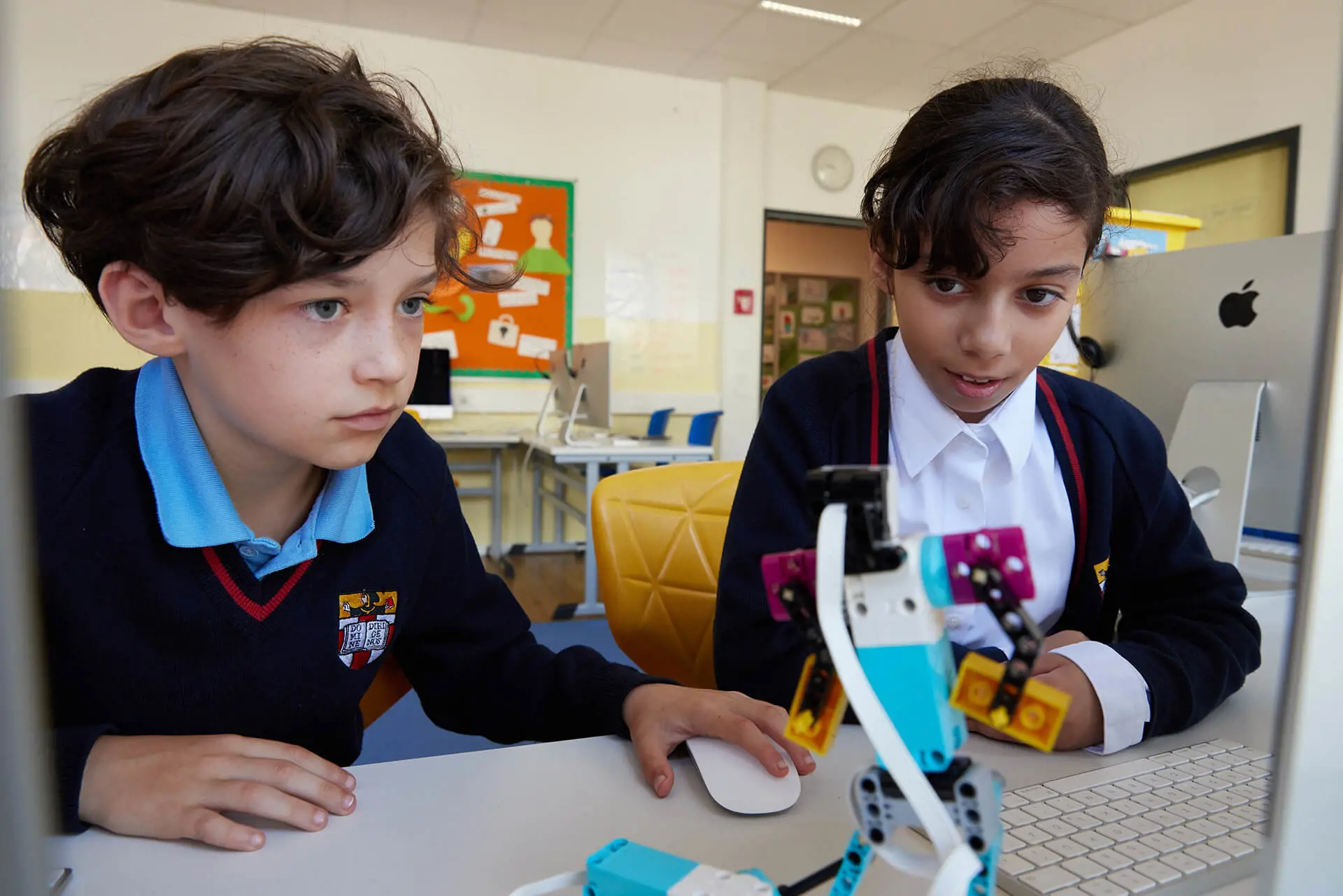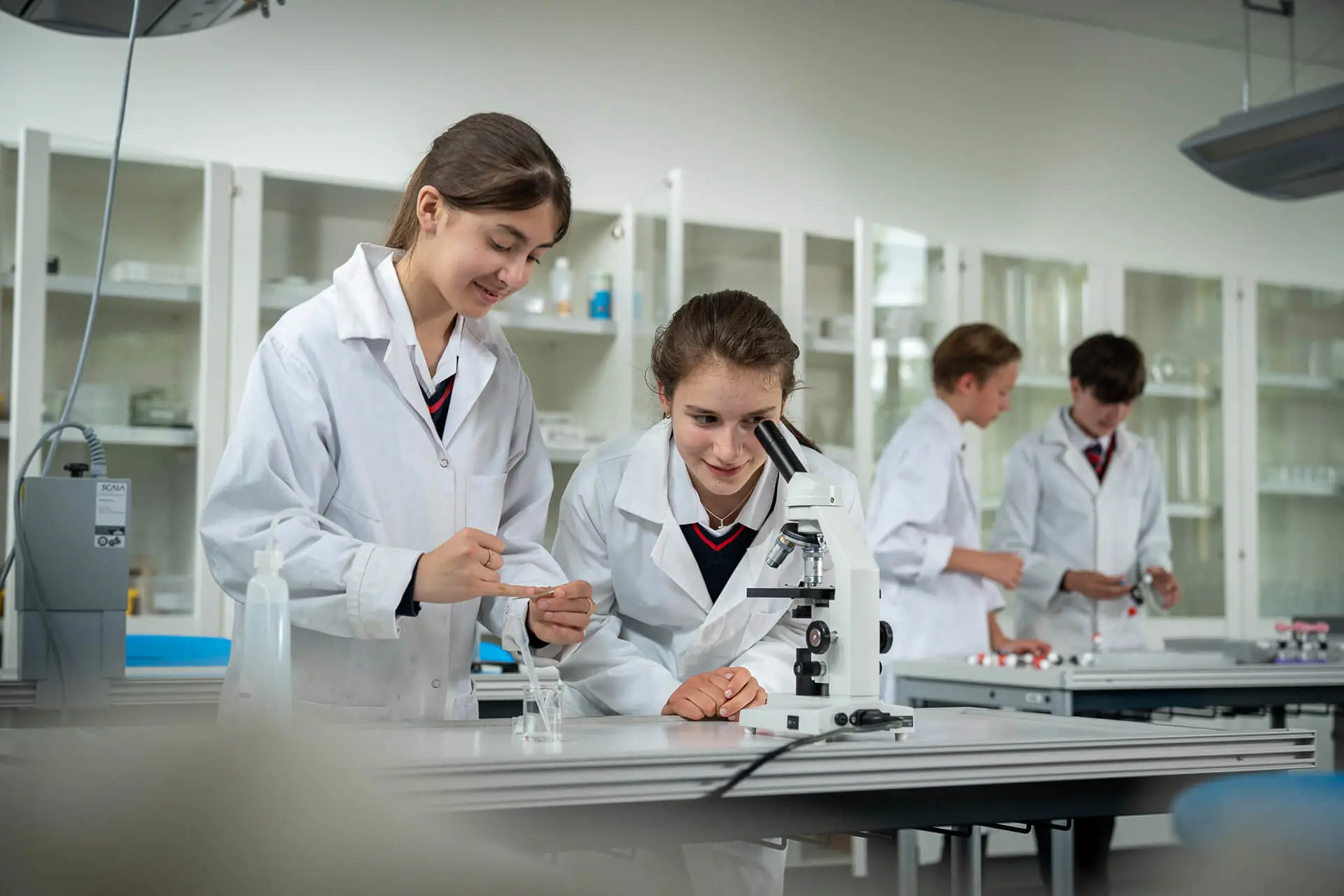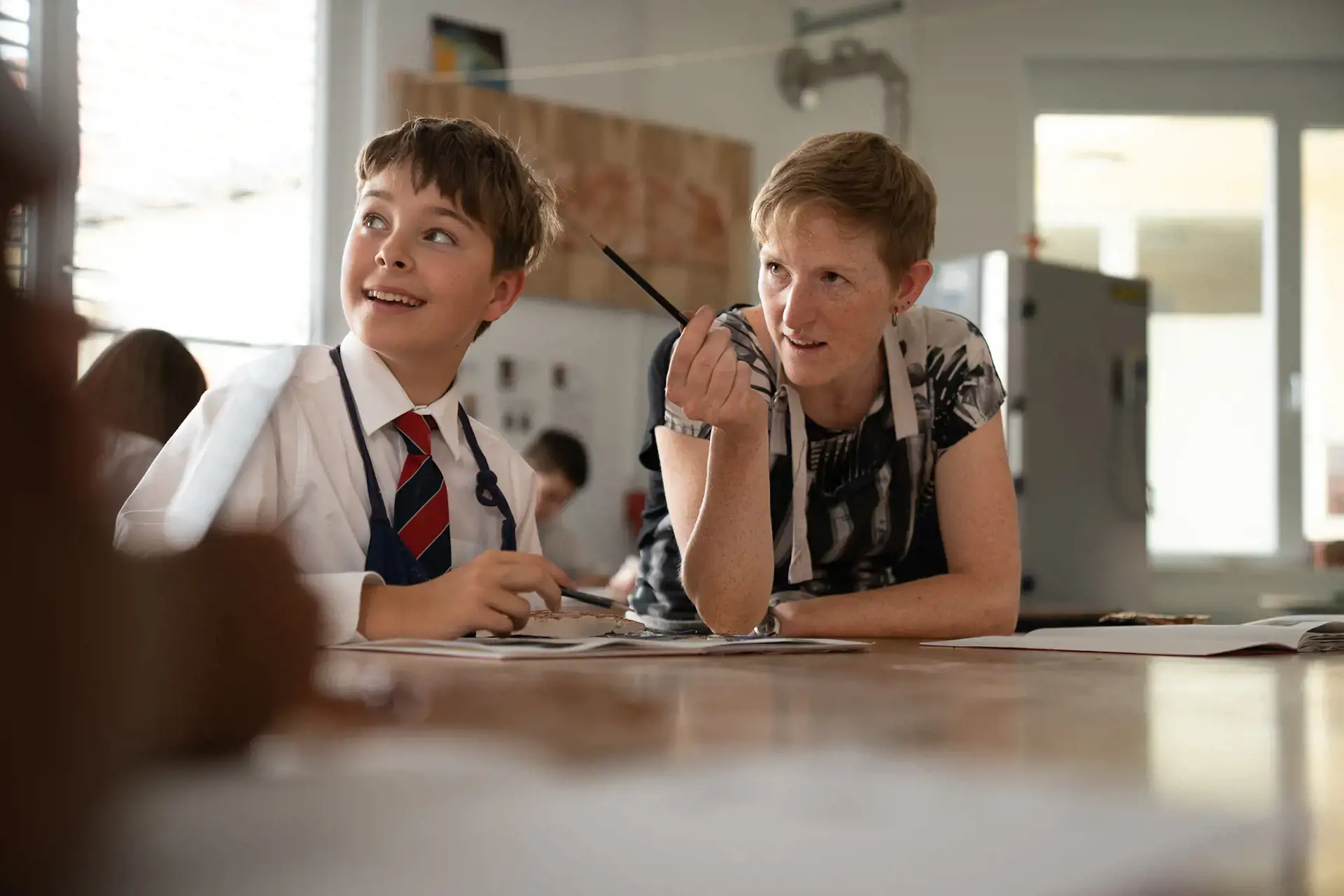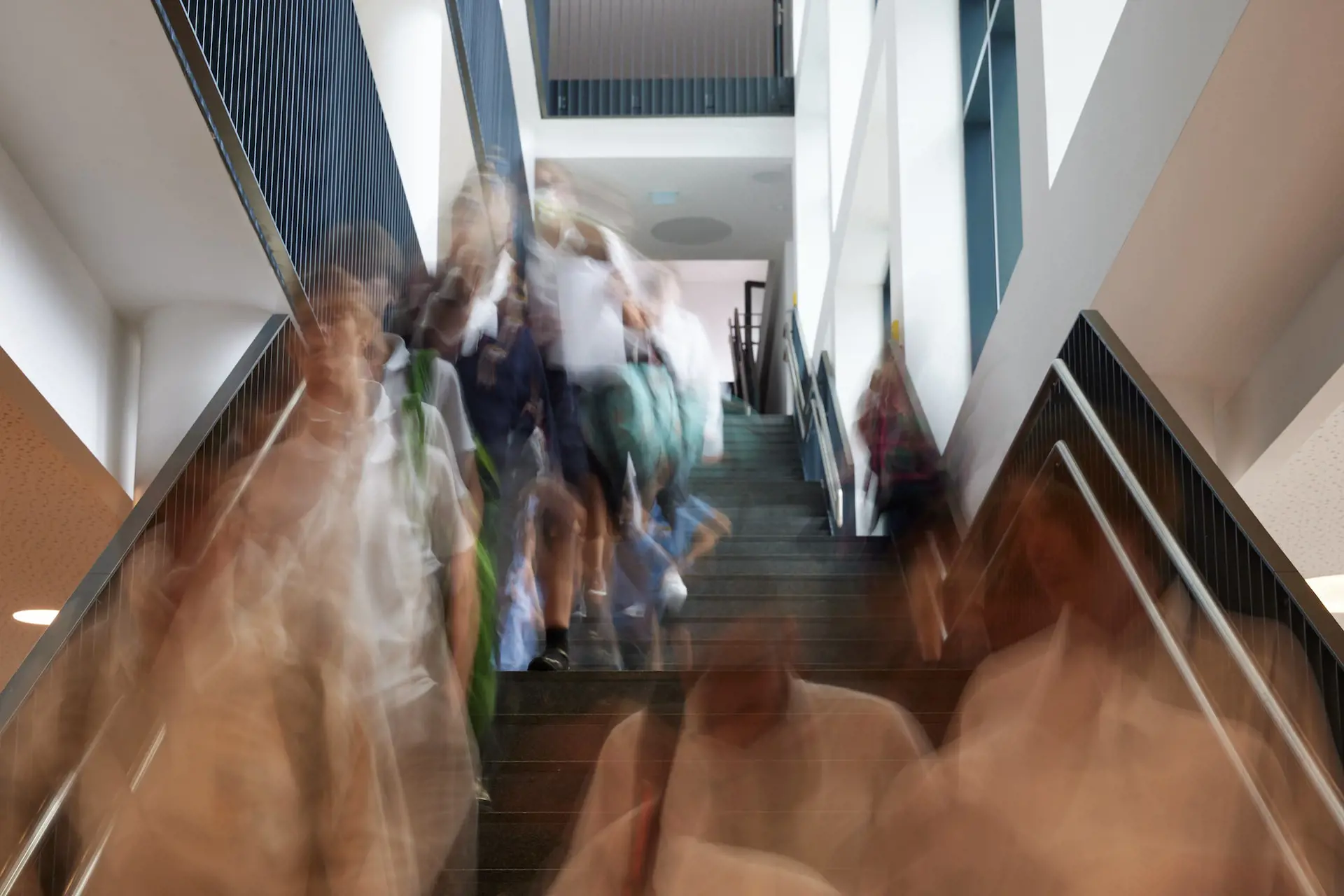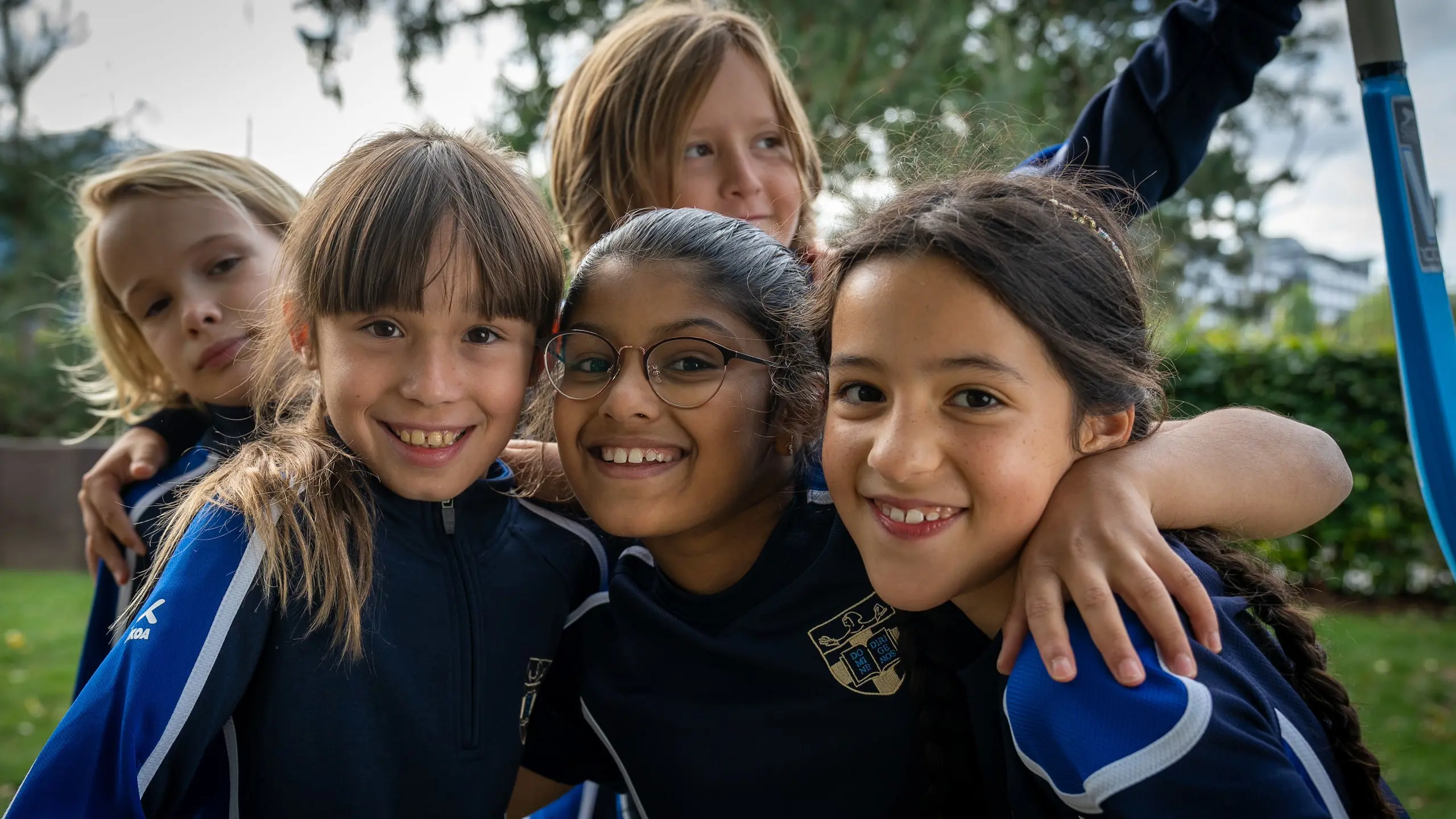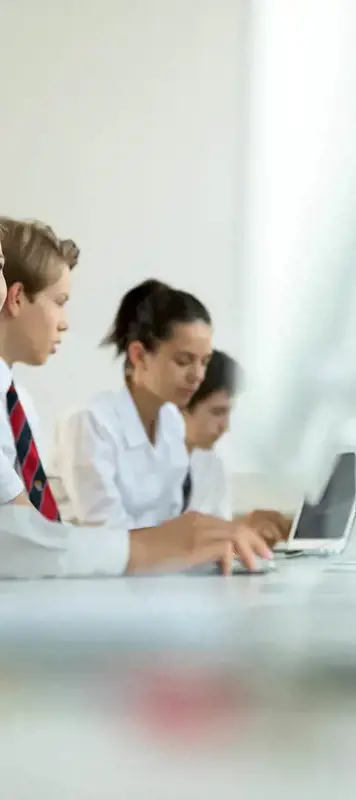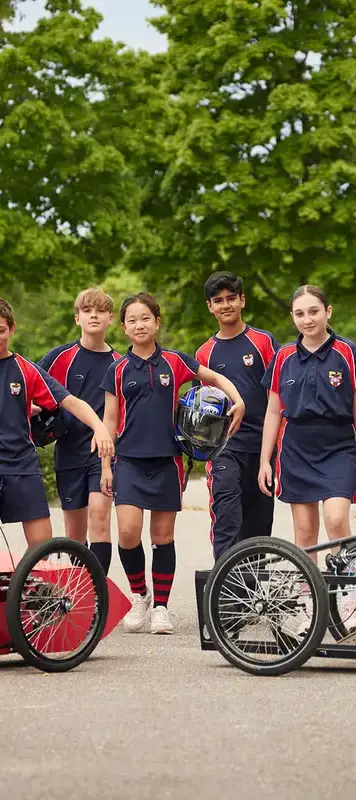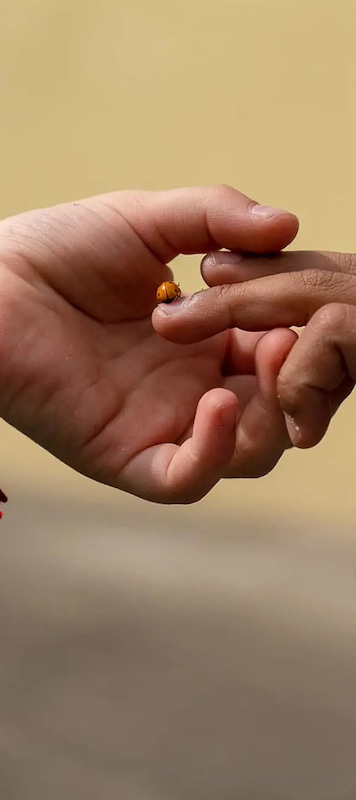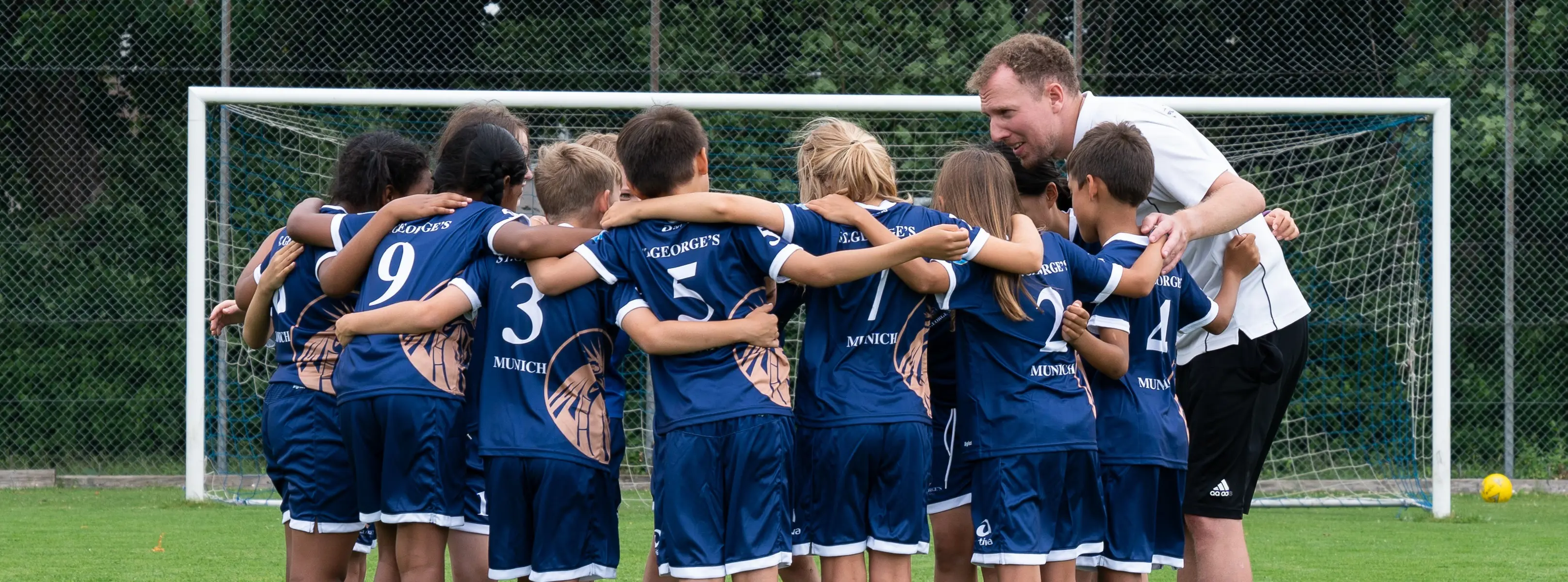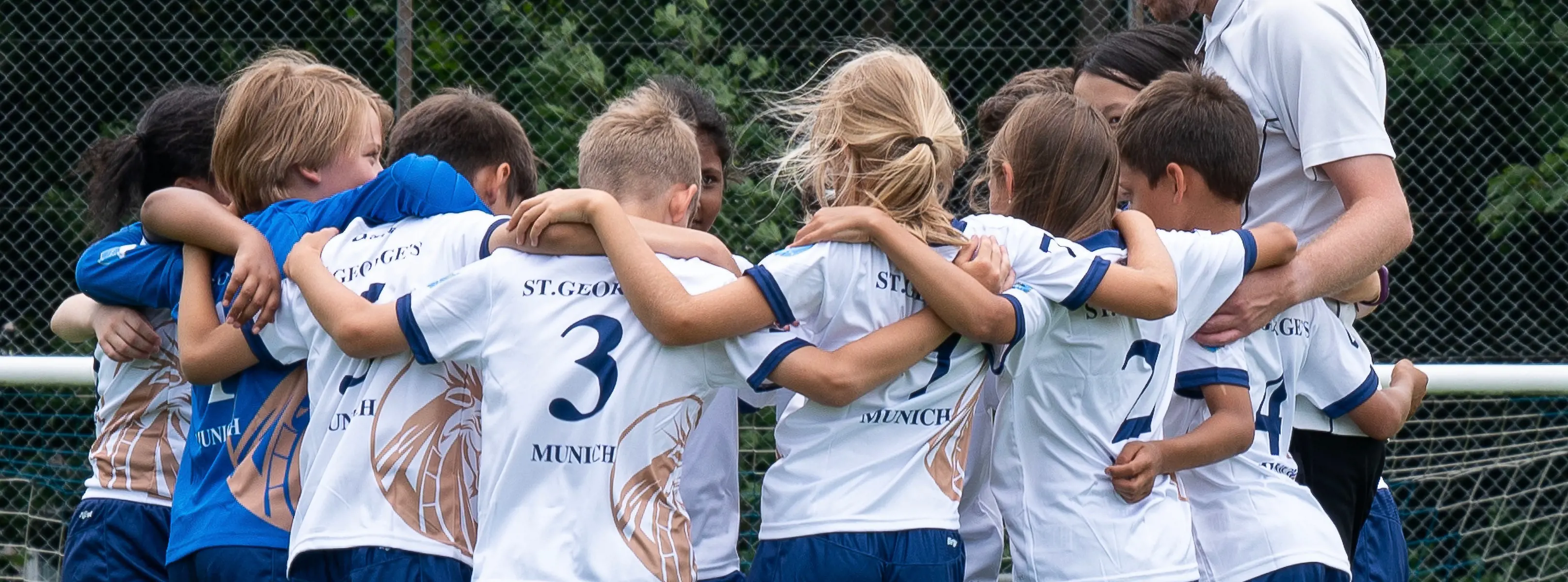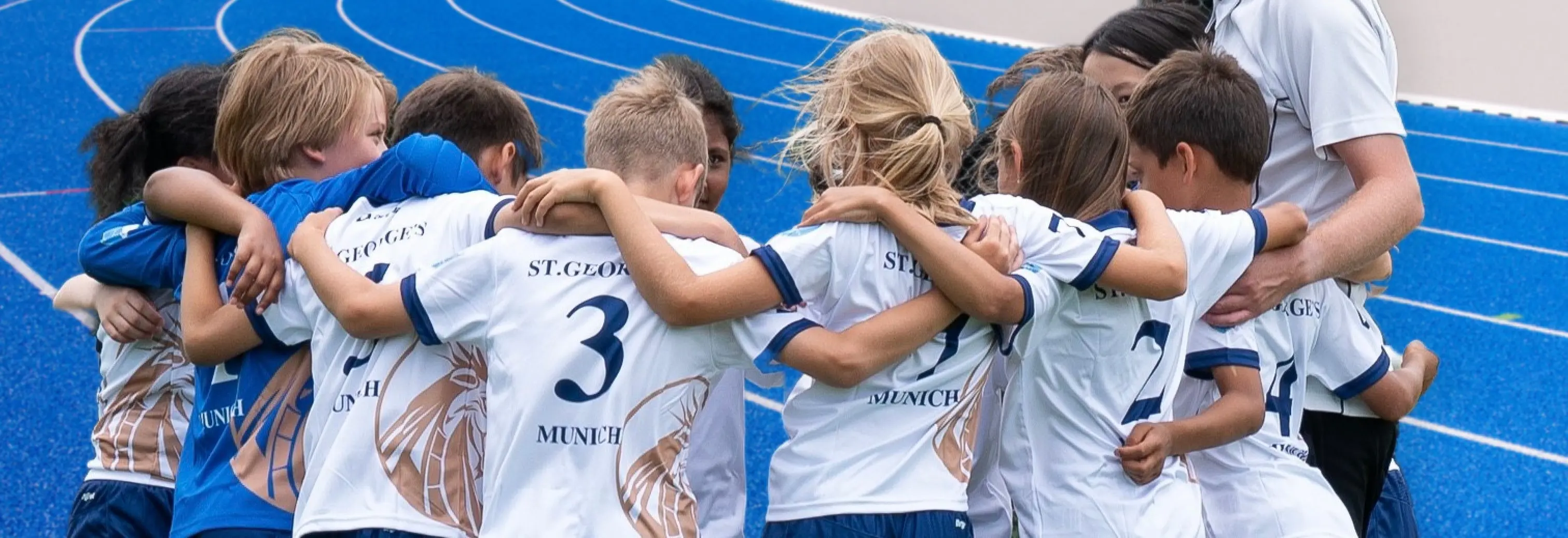Academic excellence
A St.George’s education combines the best of the British curriculum and the International Baccalaureate (IB) to offer academic excellence and personal development while fostering individual talent and preparing students for the real world.
Universities and employers across the world recognise the British education system and hold it in high regard. By combining the British curriculum with the IB’s research-based approach to teaching and learning, our students benefit from the perfect hybrid: a holistic education which builds their knowledge and equips them with the skills and attributes to flourish in society, wherever the future takes them.
From the ages of 2 – 18, our children benefit from small class sizes and individual attention combined with a vast range of curricular and extra-curricular opportunities. Through these they can discover their passions and develop the transferable skills they will need both in further education and an ever-changing working environment.
The curriculum at St.George's
| The National Curriculum in England |
|---|
|
The National curriculum in England is academically rigorous and covers a full breadth of subjects up to the age of 14. It focuses on high academic standards whilst ensuring students also develop the wider life skills which come from experiences beyond the classroom. From the first days in Primary School through to Secondary School, lessons are varied and engaging with an adapted approach for pupils that need stretch or support. Teaching and learning are inspiring and of the highest standards, building a solid foundation for success at International Baccalaureate (IB). |
| The IGCSE |
|
At the age of 14, students enter two years of preparation for the International General Certificate of Secondary Education (IGCSE) examinations, taken at the age of 16. The IGCSE offers internationally recognised qualifications in every subject and being examination-based, is an excellent foundation for study beyond the age of 16, when pupils enter the IB Diploma or Career Programme. The IGCSE provides external, independent accreditation and as a standardised quality test is recognised by German authorities as Mittlere Reife. |
| The International Baccalaureate |
|
The IB aligns strongly with St.George’s ethos and vision for education. The breadth of the IB aims to develop students holistically in a range of subjects and disciplines. It helps them to become confident, self-motivated and resilient global citizens, and offers educational emphasis beyond excellent academics in preparation for the world of employment. St.George’s offers two IB pathways, the Diploma Programme (DP) and the Career Related Programme (CP). Each provides a holistic and developmentally ambitious curriculum that is broad, balanced, conceptual and connected. Both programmes offer excellent preparation for students, whatever their future plans:
The IB compliments and mirrors the British education we offer and is recognised as equivalent to the German Abitur. |
Thanks to a rich curriculum and the huge range of experiences on offer, St.George’s students develop personal interests, abilities and academic potential well above the norm.
Using data from recognised cognitive tests, we determine a score for each student in line with their academic potential. The calculated future score of each individual St.George’s educational journey is then compared to the final score, which in average is 7.4 points above the predicted score.
Learning environments
Education is constantly evolving. New pedagogies emerge. Technologies develop and improve. St.George’s schools promote adaptable learning ecosystems designed to encourage engagement while providing the flexibility to ensure every student can achieve their potential and is enabled to solve unforeseen challenges.
All our learning spaces focus on three core considerations:
- The flexibility of learning environments and furnishings that are designed to be adjustable and inclusive, to offer the space and adaptability for teachers and students to move freely and to find the learning style that suits them best
- The focus on health and wellbeing and educating the “whole person” through satisfying wellness needs such as trust, esteem, a sense of belonging and safety
- The connection to nature and the outdoors, implementing the widely known cognitive and wellbeing benefits of spending time close to nature
| Learn more |
|---|
|
Large collaborative classrooms combine with activity stations to support our early childhood programmes; all conceptualised to promote social learning alongside hands-on, multisensorial experiences. As children progress into Primary School, they encounter classrooms that are conceived to facilitate discussion and group work. Smaller groups of 4-6 students might sit together and there is a reading corner where pupils can relax, read, interact and play during specified parts of the day. Project-based learning, visual and physical connections to the outdoors, makerspaces, STEM facilities and specialist classrooms, such as media communication suites and kinder kitchens challenge students to create and learn through practical, personalised experiences, enabling them to apply concepts learnt in the classroom to real life understanding of the world. As they grow, our students explore state-of-the-art technology and use tablets and laptops to facilitate group discussion, collaborative work and peer-to-peer learning, all within a safe, healthy and connected environment. In Secondary School, individual learning stations support computer-driven teaching. Our modern premises put learner-centred education at the forefront, giving students the opportunity to choose and explore. Through a flexible, well designed learning environment, we help our pupils to develop the skills that are fundamental to a 21st century education: critical thinking, technical literacy and problem-solving, as well as communication, collaboration, adaptability, leadership, self-awareness and so much more, that will enable them to thrive. The St.George’s school’s vision encompasses not just its students, but the broader community, aiming to create harmonious indoor and outdoor spaces that promote immersive learning, transformative teaching, and community gatherings. The continuous rethinking and evolution of our learning environments includes physical spaces such as classrooms, and workplaces; virtual spaces such as digital platforms; or blended spaces that combine both physical and digital elements. This holistic approach ensures that every corner of our campus becomes a beacon of learning, reflecting our belief that education should be everywhere — both inside and beyond the school walls. |
The role of the teacher
Our teachers are the finest educators, offering every child a rich, rewarding, and unique learning experience. They are not only passionate about their subjects but experienced in developing the enquiring minds and intellectual agility which allow our students to achieve their academic ambitions and go on to enjoy a lifetime of learning.
We encourage our teaching staff to adapt and adopt new practices that acknowledge both the art and science of learning. They understand that the essence of education is a close relationship between a knowledgeable, caring adult and a happy, motivated child. The teachers’ most important role is to inspire a love of learning and get to know each pupil as an individual to comprehend their unique needs, learning preferences, social and cultural framework, and interests. They invite every child to explore and develop their own learning journey, help them grow and make informed judgments that benefits both the students and society.
| Learn more |
|---|
|
The St.George’s educational ecosystem isn't confined to the classroom but, instead, extends into the home and the community and around the world. Our academic staff know how to make pupils enthusiastic participants in the teaching and learning process by providing project-based, collaborative, educational adventures. To get students to feel accountable for their own education, our curriculum relates to their lives, learning activities engage their natural curiosity, and assessments evaluate concrete accomplishments and are an integral part of learning. Beyond rethinking their core responsibility as leaders of student learning, our teachers are also working with peers, parents, educational institutions, industry representatives and communities to define clear and attainable standards for the knowledge, skills, and values we expect our children to acquire to achieve personal fulfilment and to benefit the wider world. |
Taking it further with adaptive teaching
We offer an educational approach that tailors learning to each student's strengths, needs, skills, and interests, supporting lower attaining pupils whilst stretching the more able.
Whilst we recognise the diverse backgrounds, experiences, and abilities of our students, we believe that intelligence and abilities can be developed. Our adaptive teaching methods involve collaboration between teachers, parents, and students to ensure every student has agency in the learning experience and an equal opportunity to excel.
| Learn more |
|---|
|
Teaching is customised to individual abilities, interests, and learning styles, all within a supportive and inclusive class environment. This might involve adapting the content or delivery of a set task for specific groups or individuals, or the use of specific instructional strategies in response to assessment, progress or understanding. This adaptive approach aligns with educational norms and frameworks; it ensures every individual can reach their potential both personally and academically, receiving the tuition that works for them, while promoting the growth mindset that will help them to become confident, agile learners. For gifted learners we provide specialised and extended learning opportunities at higher levels of abstraction to accommodate big picture thinking, as well as detailed understanding. St.George’s teachers are appropriately trained to effectively differentiate within curriculum and instructional patterns for these learners. Our adaptive methods not only offer the highest standards in teaching, but provide both challenge and support, develop critical thinking and crucial ‘soft’ skills. Most importantly, we believe it creates a supportive learning environment where all students feel valued, engaged, and motivated to learn, while ensuring the crucial balance between competency-based procedures and fulfilling grade-level academic standards. |
Summary
Our alumni join the global community as confident discerning thinkers who are resilient, socially conscious and prepared to make the most of their opportunities. Leading a life that makes a difference, they embrace responsibility, always seeking to influence others positively.

